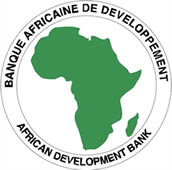The Ghanaian economy revolves around the services sector, which accounted for an estimated 51.7 percent of GDP in 2014 and employs the majority of Ghanaians. From 2011 to 2014, the sector registered an average real growth of about 8.55 percent making it the highest contributor to GDP.
In Ghana investment opportunities in agriculture lies in the Provision of agricultural inputs such as improved seeds and agrochemicals including fertilizers, pesticides and herbicides. Veterinary drugs, vaccines and chemicals; animal feed and feed ingredients are also required. Opportunities also exist in the processing of agricultural products such as cereals (maize, rice, millet) starchy crops (yam, cassava, sweet potato, plantain), legumes (carrots, cabbage, garden eggs, tomato), fruits (pineapple, pawpaw, banana, mango), industrial crops (rubber, sugarcane, cotton, oil palm, coconut, cocoa, coffee), livestock (cattle, pigs, poultry, sheep) and fisheries (tuna, tilapia, catfish), rearing of silk worm for the production of raw silk. Dairy products: processing of related products as well as the supply of machinery to establish hatcheries for day-old chicks.
Floriculture offers a lot of opportunities as Ghana’s climate and topography make the country suitable for the cultivation of a number of exotic flowers. Species such as heliconia, caribea, celosia, curcuma, gladioli, hibiscus, roses, ornamental palms and ferns perform well under natural conditions. There is potential in the national, regional and European Union markets, Processing of farm produce so as to add value, reduce post-harvest losses, promote price stability and expand demand for local agricultural produce. For example, canning of tomatoes, and processing fruits into fruit juices. Developing irrigable land through irrigation is another key area. While Ghana has a potential irrigable area of 346,000 hectares, only 10,000 hectares have been developed. Investment opportunity exists in the Agro- Processing Industry in order to add value, and to reduce post-harvest losses, to enhance price stability and enlarge demand for local agricultural produce. For example, with the processing of cocoa beans into cocoa products and fruits into fruit juices among others.
REFERENCES:
Ghana Investment Promotion Center
https://www.kpmg.com/GH/en/Documents/Doing%20Business%20in%20Ghana%202015.pdf




































